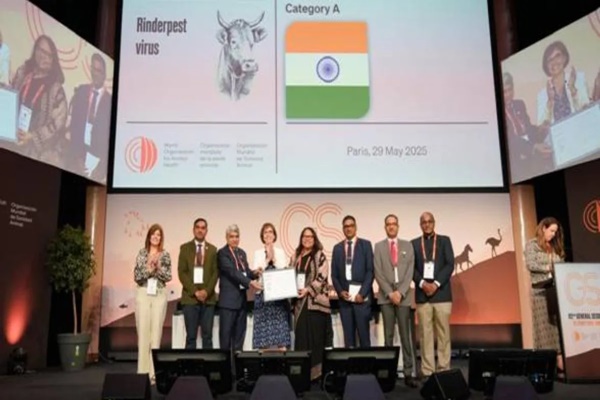India has joined the elite global group for Rinderpest Virus ‘Cattle Plague’ Containment, as ICAR-National Institute of High Security Animal Diseases (NIHSAD), Bhopal has been designated as Category A Rinderpest Holding Facility. It has been recognised by the World Organisation for Animal Health – WOAH and the Food and Agriculture Organization- FAO of the United Nations. The announcement was made during the 92nd General Session of the WOAH held in Paris last month. Secretary, Department of Animal Husbandry and Dairying, Alka Upadhyaya and India’s WOAH Delegate, was presented with the certificate of designation by the Director General and President of WOAH. India formally submitted its application for Rinderpest Holding Facility status in 2019. A joint inspection of ICAR-NIHSAD was conducted in March 2025 by international experts appointed by FAO and WOAH. Following a comprehensive evaluation, the institute has now been officially approved as a Category A RHF for a one-year term. This recognition places India among a distinguished group of only six facilities worldwide entrusted with the critical responsibility of securely holding rinderpest virus material.
Rinderpest, once known as cattle plague, was one of the most destructive livestock diseases in history before its global eradication in 2011. However, Rinderpest Virus-Containing Material (RVCM) still remains in a few laboratories, posing potential risks if released. To preserve global freedom from the disease, FAO and WOAH have implemented strict measures to limit the storage of RVCM to a small number of high-security laboratories worldwide. In alignment with this global initiative, India had designated ICAR-NIHSAD, a high-containment BSL-3 facility and WOAH reference laboratory for avian influenza, as its national repository for RVCM back in 2012.
Site Admin | June 16, 2025 9:38 PM
India joins elite group of Rinderpest Virus ‘Cattle Plague’ Containment








